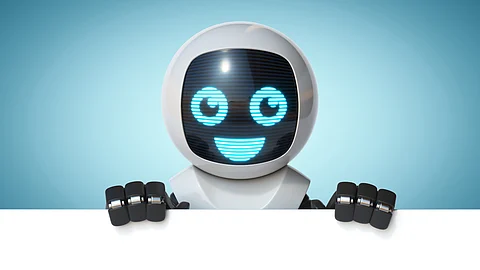

ISTOCK
Can a machine really think like a human? That question was asked over 70 years ago — and today, we’re chatting with robots, creating art with AI, and even asking it to help with homework! In this special timeline, Deccan Herald in Education takes you through some of the coolest milestones in AI’s journey — from the first chatbot to creative tools like ChatGPT and DALL·E. Whether it’s helping in school or solving real-world problems, AI is no longer science fiction — it’s part of our everyday world.
Alan Turing proposes the Turing Test
British mathematician Alan Turing publishes “Computing Machinery and Intelligence”, introducing the Turing Test — a way to assess if a machine can mimic human conversation.
The term ‘Artificial Intelligence’ is born
At the Dartmouth Conference, scientists including John McCarthy and Marvin Minsky coin the term Artificial Intelligence and launch a new era of machine learning.
The first chatbot ELIZA is created
Joseph Weizenbaum from Massachusetts Institute of Technology creates ELIZA, a program that mimics a psychotherapist using scripted responses — sparking early excitement in language-based AI.
Deep Blue defeats world chess champion
IBM’s Deep Blue beats Garry Kasparov, showing that AI can outmatch human thinking in strategic games.
IBM Watson wins Jeopardy! quiz show
Watson outperforms human champions, demonstrating AI’s ability to understand language and retrieve precise answers from vast databases.
AlphaGo beats Go master Lee Sedol
DeepMind’s AlphaGo wins a five-game match against Go champion Lee Sedol, using deep reinforcement learning to make unexpected, creative moves.
DALL·E 2 starts making art from text
OpenAI’s DALL·E 2 generates realistic and imaginative images from written prompts — proving AI can also be artistic.
ChatGPT is released to the public
OpenAI launches ChatGPT, sparking worldwide use of AI for essays, questions, storytelling, code — and much more.
Claude by Anthropic is unveiled
A new AI chatbot focused on ethics and safety, Claude uses a “constitutional” approach to respond more responsibly and accurately.
Google releases Bard (later Gemini)
Bard, based on Google’s PaLM model, joins the generative AI race — later evolving into Gemini, known for its search and reasoning strength.
Meta launches LLaMA 2
Meta releases the open-source LLaMA 2 family of language models, encouraging developers and researchers worldwide to build with and improve AI tools.
Open-source models gain popularity
AI platforms like Mistral, DeepSeek, and OpenAssistant emerge — offering free, multilingual alternatives to corporate-owned AI.
ChatGPT gets memory and voice upgrades
OpenAI rolls out new features like custom memory, voice interaction, and image analysis — making ChatGPT more versatile and personalised.
Sora: AI for video generation previewed
OpenAI teases Sora, a tool that creates short, realistic videos from text prompts — signalling the future of AI in filmmaking and content creation.
Grok by xAI enters the scene
Elon Musk’s xAI launches Grok, a chatbot integrated into X (formerly Twitter), known for its sarcastic, human-like responses.
Groq introduces blazing-fast inference
Groq gains attention for delivering real-time answers with ultra-low latency — a key shift in how fast and scalable AI can be.
OpenAI launches Operator, a task-performing AI
OpenAI introduces Operator, a tool that lets AI carry out tasks on websites — like filling forms, booking tickets, or even placing food orders — without needing user clicks. It’s rolled out as an early preview for select users.
Gemini 2.0 Flash and Pro are released
Google launches the Gemini 2.0 family, including Flash and Pro models. Flash offers quick, affordable answers, while Pro handles complex tasks like coding and long-form writing — both made available to developers worldwide.
Gemini powers real-world robots
Google DeepMind unveils Gemini Robotics, a new model that helps robots understand instructions, see objects, and take action — like opening doors or stacking boxes. It marks a major step in bringing AI into the physical world.
Meta previews LLaMA 4 and opens its API
At its first developer event, Meta showcases the upcoming LLaMA 4 models — named Scout, Maverick, and Behemoth — and launches the Llama API for researchers and developers, boosting open-source AI efforts.
Gemini 2.5 becomes production-ready
Google announces Gemini 2.5 Flash, Pro, and Flash-Lite, now fully available for real-world use. These models offer stronger reasoning and can process images, documents, and long prompts more efficiently.
ChatGPT begins testing “Study Together” mode
OpenAI starts testing a new classroom feature called Study Together. It acts like a personal tutor — asking students questions, checking understanding, and helping them learn actively instead of just giving answers.